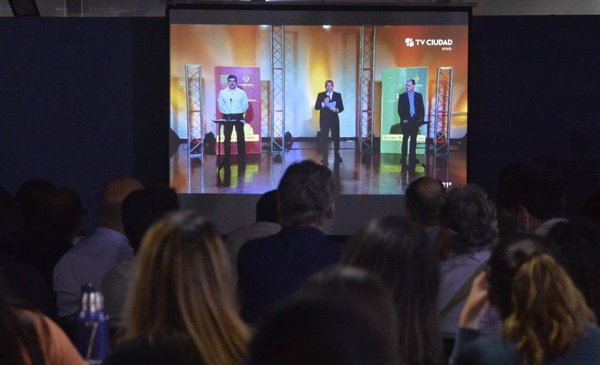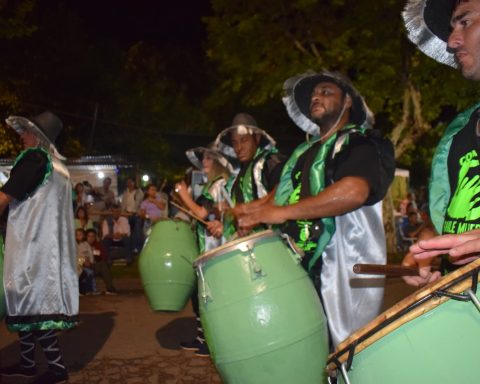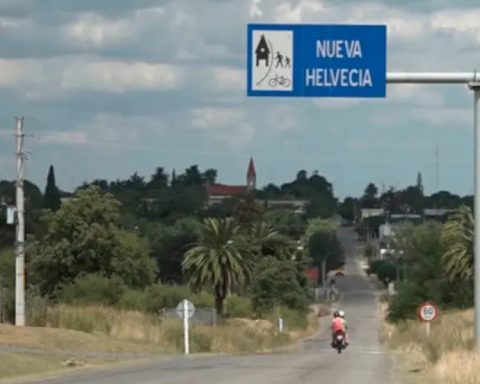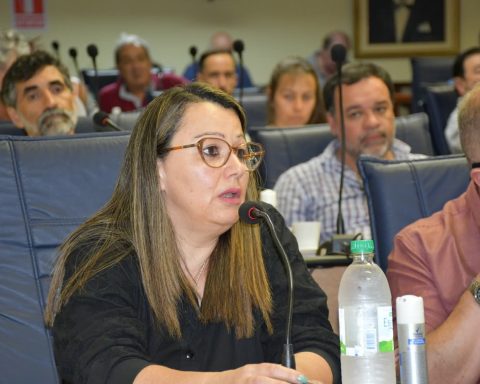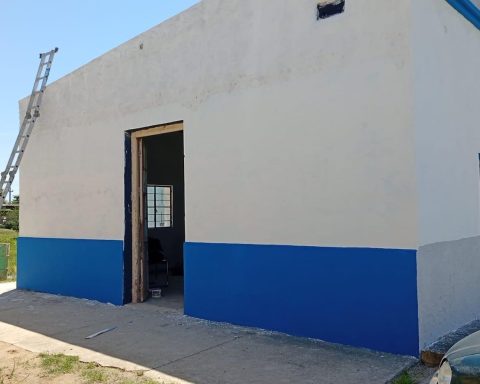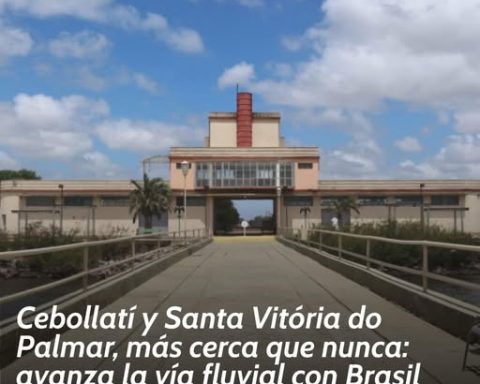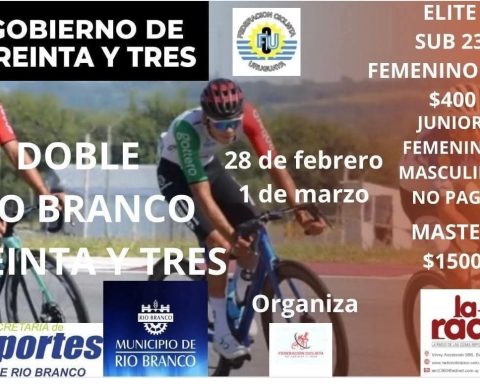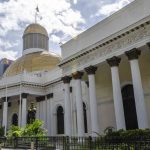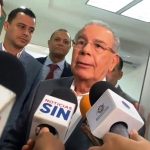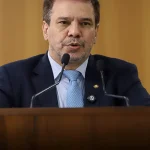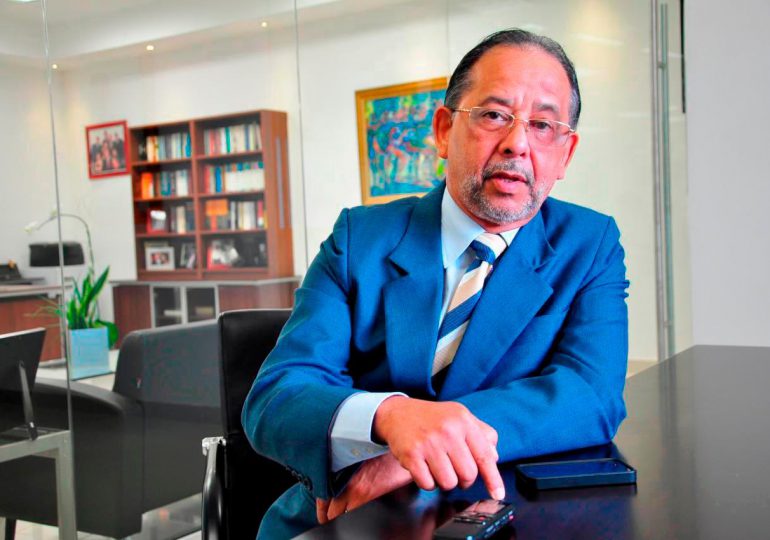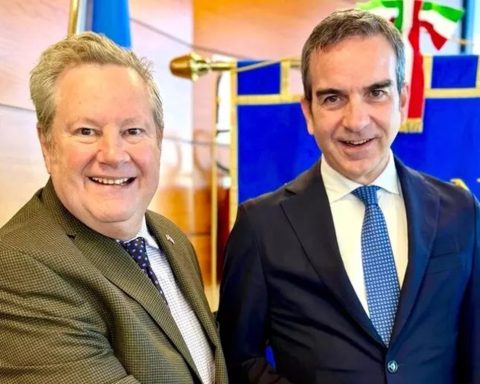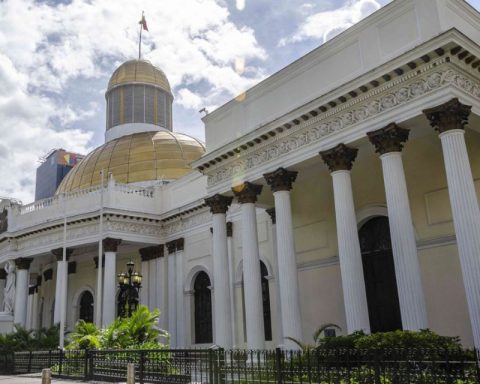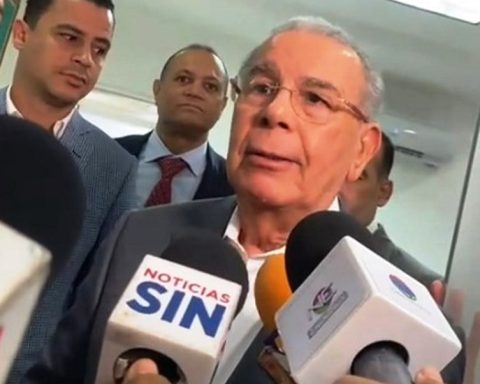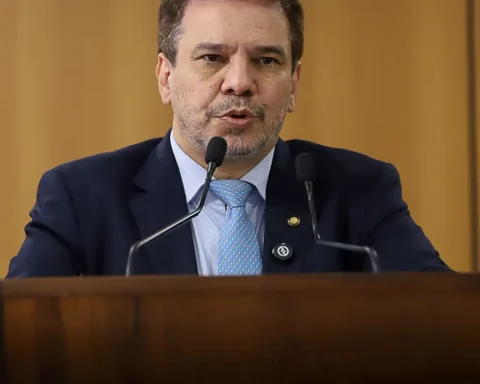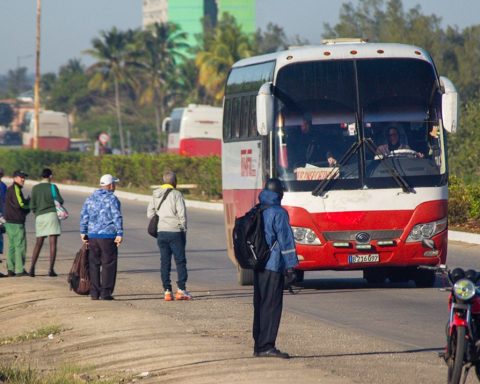With some yes, with others no. That there is already an agreement, that there is not yet. That the law belongs to the National Party and that it is not like that because, in reality, it belongs to the entire coalition. The proposals of debate they multiply in recent days and the back and forth with evasiveness in each of the commands as well.
Less than a month before the referendum of the Law of Urgent Consideration (LUC), the concern to capture the undecided electorate as well as the desire of different leaders to gain greater exposure to public opinion have turned the campaign into a long succession of proposals for television exchanges between the supporters of Yes and No.
Óscar Andrade and Guido Manini Ríos did it last week. And beyond the fact that the format of the exchange left little to be desired, the debate between the senator of the Communist Party and the leader of Cabildo Abierto proved to have aroused high public interest and gave both of them a political position that everyone recognizes as a possible asset. for the future, thus encouraging other figures on one side and the other to seek a rival.
In any case, so far those that have materialized or confirmed are mostly between pro-government and opposition legislators, an instance that, in addition to occurring daily in Parliament, was also replicated in some journalistic programs without a campaign in between.
In addition, political analysts have warned that these formats, beyond the interest they may arouse, rather serve to reaffirm their own in “defined fans”as explained to The Observer the political scientist Ignacio Zuasnabar. For the public opinion director of Equipos Consultores, these instances have “a very limited impact” in the voting and they do not usually break tendencies towards an election, although “the successes or errors can play consequences in the less defined voters”.
In any case and beyond interpretations about its eventual effects, the debates came to occupy a central space in the political debate itself in the face of the referendum.
The FA proposals
One of the leaders who has insisted the most in recent weeks on the search for an opponent for an instance on television is Fernando Pereira, president of the Broad Front.
Months ago, Pereira was willing to debate with some of the main government figures, including challenging President Luis Lacalle Pou, who defined from the beginning that it was not appropriate to lend himself to this type of instance.
The president of the FA then sought to debate either with Vice President Beatriz Argimón and with the Secretary of the Presidency, Álvaro Delgado, but did not get a response. “I would have liked to (debate), but I understand that not doing so is part of life. Now, later it is not worth complaining when others do not debate,” Pereira replied, alluding to the criticism that the now ruling party had when it was in opposition.
But things did not end there and although Pereira later managed to set up a debate for a channel from Roche with the coordinator of the white campaign in defense of the LUC and mayor of Rocha, Alejo Umpierrezalso insisted on achieving another instance with the Chairman of the National Party board of directors, Pablo Iturralde.
The former union leader told The Observer this Sunday that there was a green light from the white leader and he reported that they would debate in the last week prior to the referendum, but hours later Iturralde denied it.
According to the white leader, when the news came out he wrote to the former president of the PIT-CNT via WhatsApp and asked him: “Did you propose to debate me?”, to which Pereira told him that it was not him, but the media themselves. In any case, Iturralde explained to The Observer that he spoke with the front winger about the “possibility of debating”, but stressed that “he did not have a definition” so they agreed to talk after the carnival week, something that on the left, for their part, they see as a delay.
At a press conference, Pereira stressed that the whites, and Iturralde in particular, must “answer the public whether they want to debate or not.”
Mieres and the ruling party
But while Pereira unsuccessfully searches for a front-line white opponent, a minister and leader of one of the coalition parties has been refused by the president of the Broad Front to debate.
Pablo Mieres, Minister of Labor and leader of the Independent Party, challenged Pereira, who was reluctant to do so, pointing out that the LUC “It is not an invention of the coalition”, but a proposal of the nationalists, and in particular of Herrerismo.
“We want to debate with those who built the law,” Pereira explained at a press conference, although three weeks earlier he had told Telemundo that there would be a debate “with the politicians and parties that defend the law.” This Monday he said again that his decision was to debate with those who promoted the LUC. “It has to do with what we all measure and with whom it is convenient to debate at all times,” Pereira stressed and then added: “As we believe that a law of such poor quality could not have been made by Mieres, we prefer to debate with those who we believe are the authors “.
The Minister of Labor and Social Security described Pereira’s argument as an “excuse” and insisted that the LUC does not belong exclusively to the National Party. “Before he was eager to debate and denounced that we didn’t want to. He now avoids the debate by saying that the LUC belongs to Herrerismo, when it belongs to the entire coalition. People will draw their conclusions,” Mieres wrote on Twitter.
Asked about the unsettled debates between the whites and Pereira, Iturralde replied that the president of the Broad Front intends to “debate with a blacksmith”, but pointed out: “Neither Argimón, nor Delgado, nor I are blacksmiths”.
On the other hand, two weeks ago the mayors of the ruling party held a press conference at the house of the National Party in Ciudad Vieja and declared themselves “willing to debate”, especially with their Frente Amplio peers, something that was explicitly dismissed by Andrés Lima ( Salto) first and by Yamandú Orsi (Canelones) later.
Those that are confirmed, in addition to Pereira versus Umpiérrez, are the debates between senators Gustavo Penadés (National Party, Herrerismo) and Mario Bergara (Broad Front, Progressive Seregnist Call)and between Jorge Gandini (National Party, For the Homeland) and Alejandro Sánchez (Broad Front, MPP). The first will be organized by the Uruguayan Chamber of Television for Subscribers (CUTA) on March 7. The second will have two instances: a first debate in El Espectador on March 10 and another on March 16 organized by CUTA. There are also other channels and radios organizing debates between deputies.
